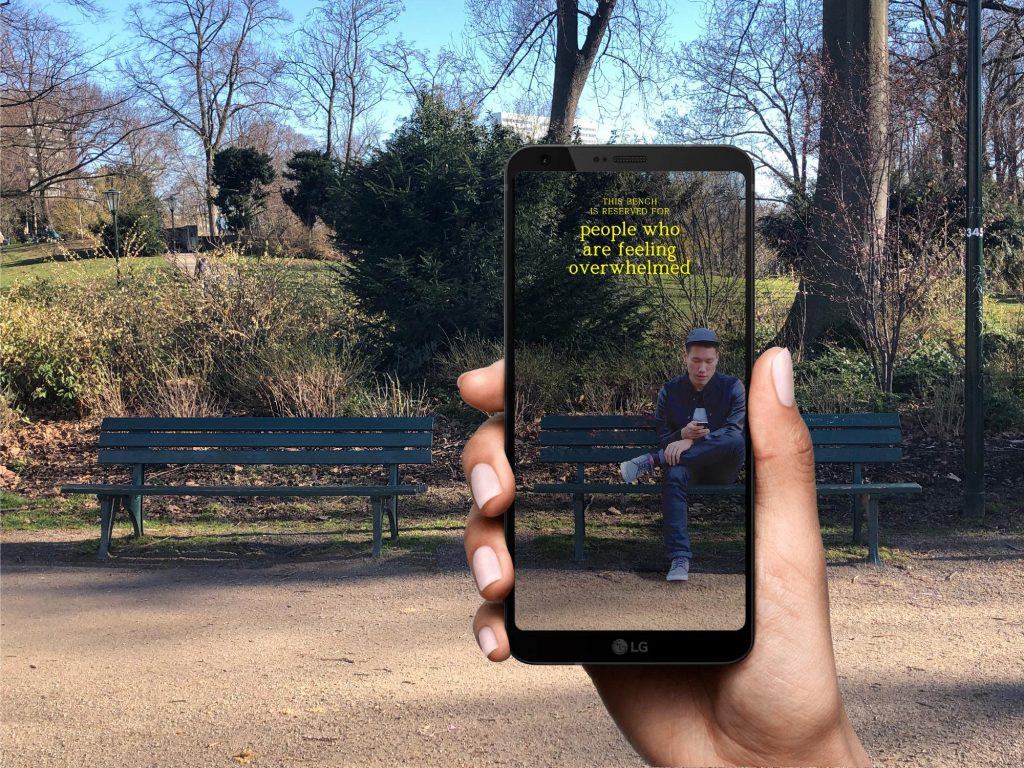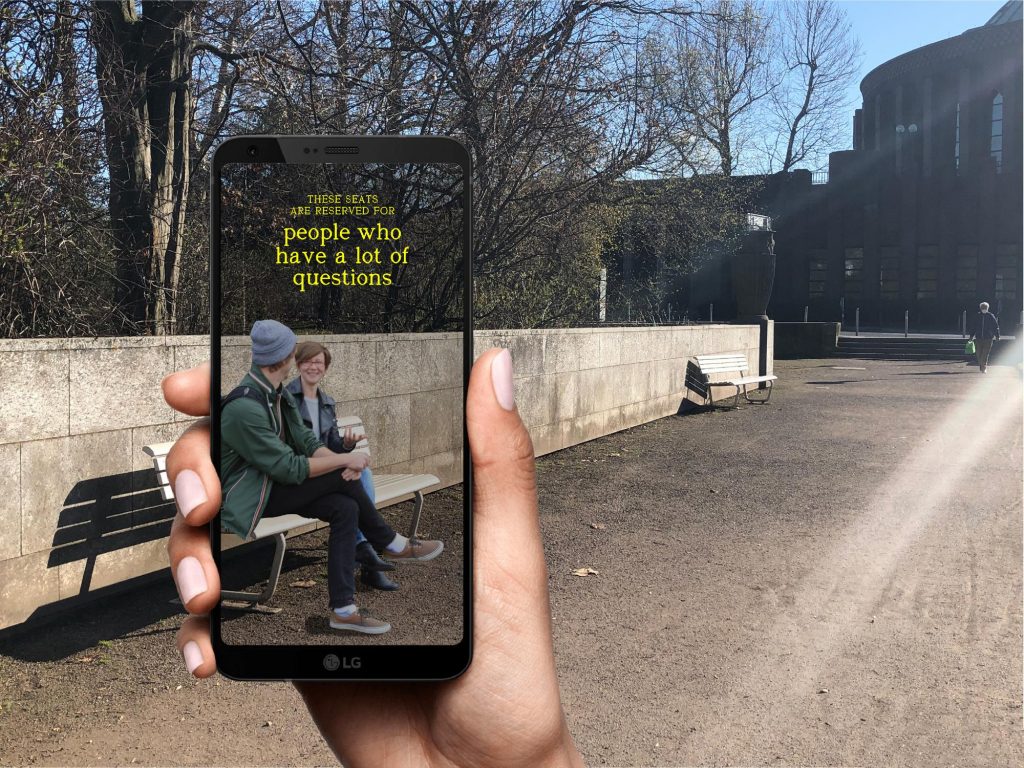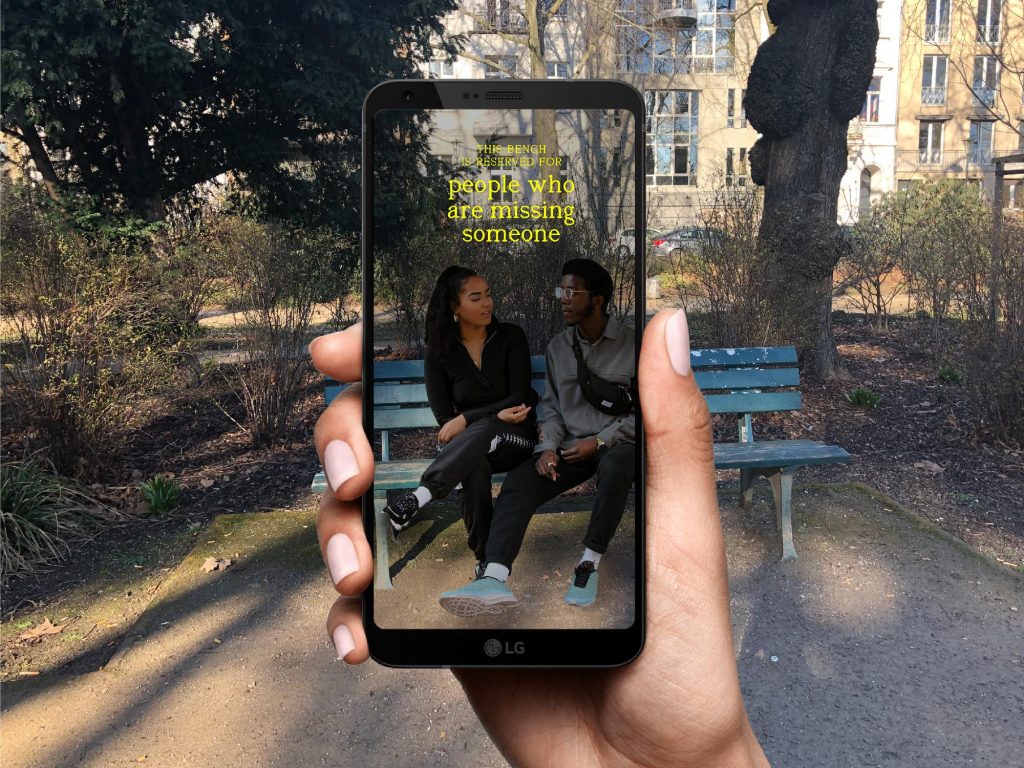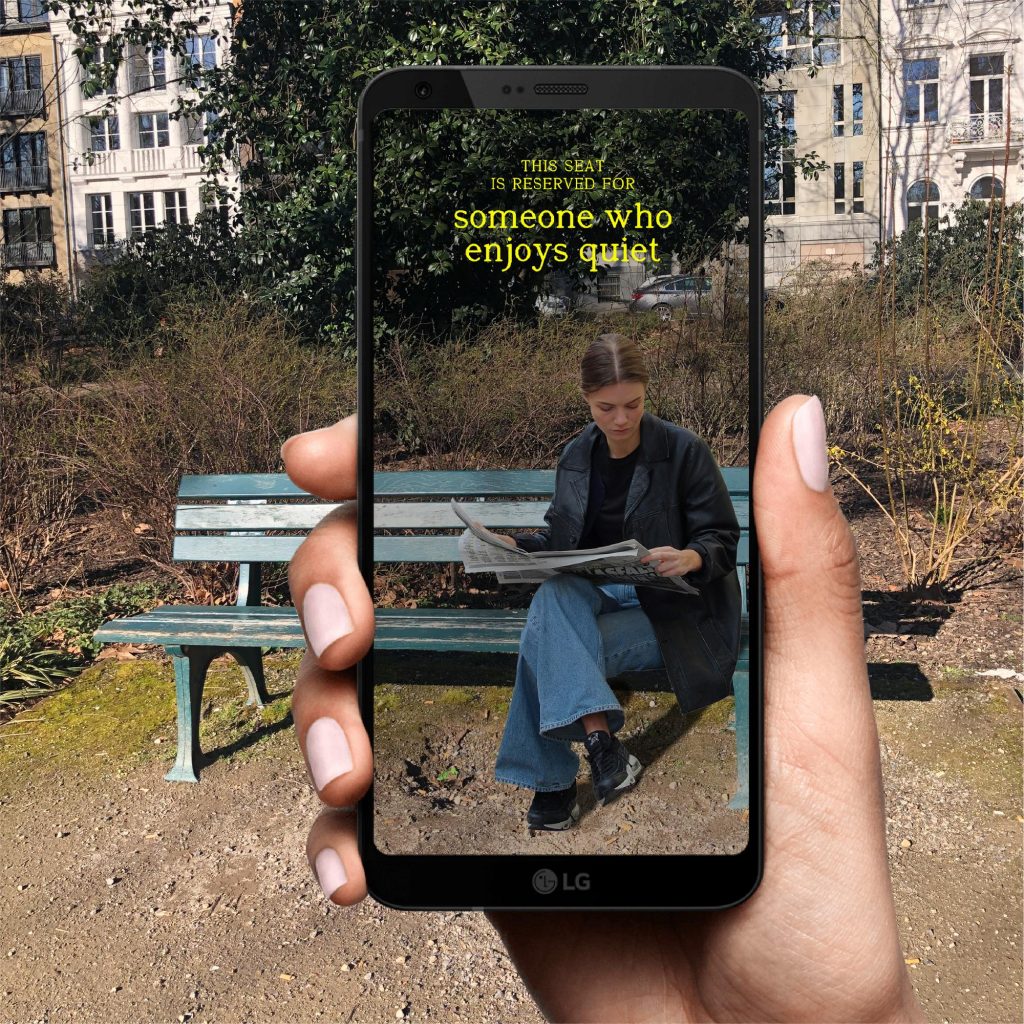When we talk about technology or computer science, and specifically about games or software developers, many always imagine them to be men. It is true since only 20% of computer science professionals are women thus it is understandable that many may assume that some specific developer will be a man and not a woman.
For this Looking Outwards writing assignment I chose an incredible woman, a woman thanks to whom this class of 15-104 even exists. It is Lauren Lee McCarthy, lead developer of p5.js! The project that obviously fascinates me is the development of p5.js but for this week’s I chose a McCarthy’s project called “I’m Glad You Asked”. “Commissioned for the NRW Forum AR Biennale in Düsseldorf, “I’m glad you asked” spreads over the museum grounds, augmenting the social landscape of the park.” I admire this project because it was created with an intention to bring people together, to create new acquaintances, friendships, relationships. On the museum grounds there were multiple benches that were virtually labeled with many different phrases that would pop up on your phone screen after scanning the bench. Some of these phrases were: “This bench is reserved for people who are feeling overwhelmed”, “This bench is reserved for people who have a lot of questions”, “This bench is reserved for people who are missing someone”, “This bench is reserved for someone who enjoys quiet”. People who identified themselves with some specific phrases would sit on the bench and another person could come up and ask them something like: “Hi, excuse me but do you also miss someone?” or “Are you also feeling overwhelmed”. It’s always easier to talk to strangers about your problems since their opinion about you won’t be biased and will most likely be true. The aspect of this project that I admire is the fact that such small talks could grow into big friendships and maybe even potential romantic relationships. If two people have something in common then this spontaneous conversation will start on its own.
Lauren Lee McCarthy (she/they) is an artist examining social relationships in the midst of surveillance, automation, and algorithmic living. Lauren has a BS Computer Science and BS Art and Design degrees from MIT and MFA degree from UCLA where she currently works as an Associate Professor for UCLA Design Media Arts. She is working with performance, software, electronics, internet, film, photography and installation. As it was stated before, Lauren is the lead developer of the p5.js, “an open-source art and education platform that prioritizes access and diversity in learning to code, with over 1.5 million users. She expands on this work in her role on the Board of Directors for the Processing Foundation, whose mission is to serve those who have historically not had access to the fields of technology, code, and art in learning software and visual literacy.” (https://lauren-mccarthy.com/Info) In many of her computational projects, Lauren uses the idea of communication and interaction with other people or where new people meet other new people due to her social anxiety. Lauren once stated that she felt jealous of how Amazon Alexa has an intimate place in people’s lives without even trying. McCarthy uses her knowledge of computer science and her unique thinking and creativity to help people socialize and learn more about technology, especially if people didn’t have a chance or opportunity to do so before. Her actions are very honorable and I respect Lauren as a human being and as a programmer. “I create performances inviting viewers to engage. To remote control my dates. To be followed. To welcome me in as their human smart home… Each work feels like an attempt to hack my way out of myself and into closeness with others. I am embodying machines, trying to understand that distance between the algorithm and myself, the distance between others and me. There’s humor in the breakdown, and also moments of clarity. Who builds these artificial systems, what values do they embody? Who is prioritized and who is targeted as race, gender, disability, and class are programmatically encoded? Where are the boundaries around our intimate spaces? In the midst of always on networked interfaces, what does it mean to be truly present?” These excerpts from Lauren’s personal statement show us that she truly cares for people and that she truly loves what she does.
https://lauren-mccarthy.com/Im-glad-you-asked – link to the project
https://lauren-mccarthy.com – Lauren Lee McCarthy’s website




![[OLD SEMESTER] 15-104 • Introduction to Computing for Creative Practice](https://courses.ideate.cmu.edu/15-104/f2021/wp-content/uploads/2023/09/stop-banner.png)